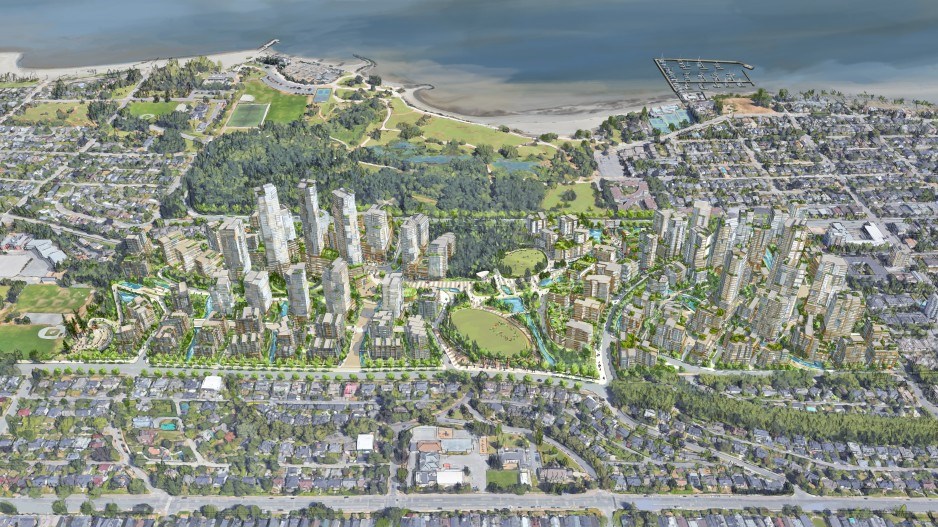While a challenging economy could affect development timelines, it’s not as bad as rushing projects and making mistakes, said Musqueam, Squamish and Tsleil-Waututh leaders at a business event in Vancouver Thursday.
Strengthening internal capacity and external partnerships is more important than speed of delivery, Chief Wayne Sparrow of Musqueam Indian Band said at a June 19 panel hosted by Greater Vancouver Board of Trade.
“We’re not in a hurry to make mistakes, and with the economy going, the advantage that we have is, we’re going to be here forever. We’re not going anywhere,” he said.
“We’re taking advice from our CEOs, and we have that input and our partners about when we move and how fast we move, because they are the experts and the ones that are helping us.”
Sparrow was joined at Fairmont Hotel Vancouver by Chief Jen Thomas of Tsleil-Waututh Nation and Wilson Williams, spokesperson for Squamish Nation, for their fifth annual address to the GVBOT, which came during National Indigenous History Month.
The trio discussed a variety of topics ranging from projects by their joint MST Development Corp. to the recent renaming of Vancouver’s Trutch Street. Here’s some of what they had to say:
On provincial, federal bills to fast-track major projects:
Thomas: “I look at that as steps backward. I would like to believe … that if we work with [the province] they’ll listen to us, I really hope that happens but I just think they’re up to something. Bill C-5 is going to go through the federal government [June 20], and it’s almost the same kind of bill. I just don’t get it, we just signed our reconciliation agreement with the federal government, now they’re going to push this through.”
Williams: “We don’t want to go backwards … we want to continue to build that trust. I saw [B.C. Premier] David Eby [June 18], we had a good conversation. We’re going to have a lot more of a conversation with our nation and MST, so that’s kind of where we left it, and he was very sincere about moving forward in a good way.”
On reconciliation and progress:
Sparrow: “We’re in a position here now with the three of us, but it’s our ancestors that paved that road for us. If it wasn’t for them, like who would have thought in this day and age right now that the three of us would be sitting up there? Our ancestors wouldn’t even be in this room, let alone be sitting up here.”
On business diversification:
Williams: “We’re looking at how we’re going to be part of the entertainment district in Vancouver, how we’re going to be a part of the tourism vibe in the future, but sharing our story at the same time and protecting each other’s integrity with that. But the richness of the storytelling that’s going to come out, that’s never been heard before, is going to be the next generation’s forte. So you look at, OK how are we going to meet these challenges? We need to diversify and expand our capacity beyond just kind of real estate.”
On Willingdon Lands and other joint projects:
Thomas: “To see it come alive, it’s pretty surreal to see what we’ve been doing in these developments, to see how big we’re getting, you know? We’re going to be the biggest developers in Canada one day.”
On the infrastructure deficit:
Wiliams: “We still lack infrastructure in our communities, you know? We look at the Squamish Valley, and we don’t have proper cell phone service when we get up in the deep forest. We don’t have proper emergency communication, proper water. We’re still getting water from a well. This is where we want to build the infrastructure and just climb right out of poverty and make sure we are walking with our people every step of the way.”
On next year’s FIFA World Cup matches in Vancouver:
Sparrow: The Vancouver 2010 Olympics “brought our communities together about how we can accomplish what we can accomplish today. And now we’ve just got to keep building on it. With FIFA … it’s a different animal. It’s the biggest sporting event in the world. But we’re trying to take what we learned from 2010, what we can bring forward and how we can expand on it.”





